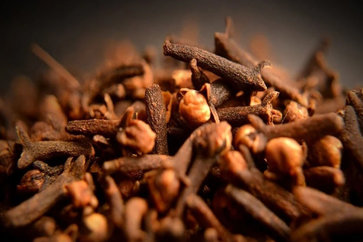Winter Constipation: Understanding the Causes and Ayurvedic Solutions
The cold winter months can sometimes bring unexpected digestive troubles, and constipation is one of the most common complaints. For some people, the issue of constipation may be more pronounced during the colder months, even if they don’t typically experience digestive issues throughout the year. 
Ayurveda, a traditional system of medicine that focuses on balancing the body’s energies, offers invaluable insights into why constipation occurs in winter and how to address it effectively. This article explores the causes of winter constipation, the Ayurvedic perspective, and provides remedies for alleviating discomfort and promoting regular bowel movements.
As temperatures drop, the body naturally conserves heat to maintain internal balance, which can lead to slower digestion. In Ayurveda, this shift is often linked to an increase in the Vata dosha, which governs movement and circulation within the body. Vata’s cold, dry, and irregular qualities can cause the digestive system to slow down, leading to symptoms like constipation. The lack of moisture and warmth in the environment can further exacerbate these imbalances, making it harder for the body to eliminate waste efficiently.
Additionally, lifestyle changes during the winter—such as reduced physical activity, decreased fluid intake, and an increase in heavier, denser foods—can all contribute to sluggish digestion. Ayurvedic principles emphasize the importance of maintaining a routine and adapting dietary habits to support the body’s needs during colder months. By making small adjustments to diet, exercise, and self-care, it’s possible to prevent and manage constipation effectively during winter.
In Ayurveda, specific remedies are recommended to pacify the aggravated Vata dosha and promote smoother digestion. Warm, moist, and grounding foods are favored over cold or dry options, and herbal remedies such as ginger, fennel, and triphala are often used to aid in digestion and encourage regular bowel movements. Abhyanga, the practice of self-massage with warm oils, is also a popular Ayurvedic technique to stimulate circulation and ease tension in the body.
Understanding the interplay of seasonal changes and digestive health from an Ayurvedic perspective can provide a holistic approach to preventing and treating winter constipation. By prioritizing warmth, hydration, and balance, you can support your body’s natural rhythms and enjoy better digestive health throughout the colder months.
What is Constipation?
In Ayurveda, constipation is defined as difficulty in passing stool, which can be accompanied by infrequent, hard, dry, or pellet-like stools. Other symptoms that commonly accompany constipation include:
- Straining or discomfort during bowel movements
- The sensation of incomplete evacuation
- A feeling of blockage in the intestines
- Abdominal discomfort or bloating
While occasional constipation may not be a serious concern, chronic constipation can lead to discomfort, gas, bloating, and even more serious issues like hemorrhoids, anal fissures, or toxicity in the digestive system due to waste accumulation.
Causes of Constipation in Winter
Several factors contribute to constipation during the winter months, with environmental, dietary, and lifestyle changes playing pivotal roles. Understanding how these factors contribute to constipation can help guide appropriate remedies.
1. Environmental and Seasonal Changes
Winter brings with it cold, dry weather that can have a significant impact on the digestive system. The body, in an attempt to preserve warmth, tends to slow down its functions, including digestion.
The colder temperatures can also lead to dehydration, which causes the stool to become dry and harder to pass. Additionally, a lack of exposure to sunlight in the winter months can reduce the body’s production of Vitamin D, which plays a role in digestive health.
2. Dietary Habits
During winter, there is a tendency to consume heavier, richer foods that are more difficult to digest. Foods such as deep-fried items, dairy products, and meats are common winter staples, but they can contribute to sluggish digestion and constipation.
Another dietary factor is the reduced intake of fiber during the colder months, as fresh fruits and vegetables become less available.
Many people also tend to drink less water in winter because of the cooler temperatures, leading to dehydration—another major contributor to constipation.
3. Lifestyle Factors
The winter months often encourage a more sedentary lifestyle, with people spending more time indoors, which reduces physical activity.
Exercise plays a critical role in stimulating the digestive system and promoting regular bowel movements, so a lack of movement during winter can exacerbate constipation.
Additionally, winter often brings a higher level of stress, particularly during the holidays, which can further impair digestion and contribute to constipation.
The Ayurvedic Perspective on Constipation
Ayurveda is a holistic medical system that focuses on maintaining balance in the body, mind, and spirit. At the heart of Ayurvedic philosophy is the concept of the three Doshas—Vata, Pitta, and Kapha. T
hese energies govern all the physiological and psychological functions in the body, and each person has a unique constitution (Prakriti) that reflects the balance of these Doshas.
Vata Dosha, associated with the elements of air and space, governs movement, including the movement of food and waste through the digestive system.
When Vata is balanced, digestion functions smoothly, and waste is eliminated regularly. However, during the winter months, Vata tends to become aggravated due to the cold, dry, and windy qualities of the season.
This aggravated Vata can disturb the colon’s function, leading to constipation. The cold and dry nature of Vata causes the digestive system to become sluggish and dehydrated, resulting in difficulty passing stool.
In Ayurveda, the key to treating constipation during winter is to balance the Vata dosha. This can be achieved through practices that restore warmth, hydration, and lubrication to the body.
Ayurvedic Remedies for Winter Constipation
To address constipation in winter, Ayurveda suggests a combination of dietary, herbal, and lifestyle changes that focus on soothing and balancing the aggravated Vata dosha. Below are some effective Ayurvedic remedies:
1. Hydration with Warm Fluids
In Ayurveda, staying hydrated is essential for maintaining digestive health. However, the cold nature of winter aggravates Vata, so drinking warm fluids is preferable to cold beverages.
Warm water, herbal teas (like ginger, peppermint, and fennel), and soups can help balance Vata’s cold and dry qualities. Drinking at least 80 ounces of warm fluids daily helps hydrate the body and promote regular bowel movements.
Warm water helps to maintain circulation and digestion, while herbal teas like ginger and peppermint provide additional digestive benefits. Ginger, in particular, is known for its ability to stimulate Agni (digestive fire) and reduce bloating and gas.
2. Soaked Flaxseeds or Milk with Ghee
Flaxseeds are an excellent remedy for constipation due to their high fiber content and omega-3 fatty acids, which are beneficial for digestive health.
Soak a tablespoon of flaxseeds in water overnight and drink the mixture in the morning. This helps to lubricate the digestive tract and facilitate smooth bowel movements.
Another highly effective remedy is milk with ghee. Ghee is considered a natural lubricant that helps soften stools. Drinking a cup of warm milk with one to two tablespoons of ghee before bed helps soothe and lubricate the digestive system, making bowel movements easier.
The combination of milk and ghee is especially beneficial during winter as it provides warmth and nourishment to the body.
3. Ayurvedic Herbal Remedies
Ayurvedic herbs and formulations can help restore balance to the digestive system and encourage regular bowel movements. Some popular Ayurvedic remedies for constipation include:
- Abhayarishtam: This herbal syrup, primarily made from Haritaki, is an excellent remedy for constipation. Haritaki is one of the most effective herbs for improving digestion and bowel regularity. It has mild laxative properties, promotes detoxification, and relieves bloating. The recommended dosage is 12-24 ml, taken 1-2 times daily after meals.
- Hinguwadi Gulika: These tablets are often used to treat various digestive issues, including constipation. They help alleviate bloating, indigestion, and flatulence while promoting bowel movements. Dosage: 1-2 tablets before bedtime, or as prescribed by an Ayurvedic practitioner.
- Avipathi Choornam: This powder is used to balance Pitta dosha and helps alleviate constipation caused by excess acidity or digestive imbalances. It promotes healthy digestion and smooth excretion. Consult with an Ayurvedic doctor for appropriate dosage.
4. Dietary Modifications
Ayurveda emphasizes the importance of food as medicine. For winter constipation, a diet that is warming, moist, and grounding is recommended. Some specific dietary changes to help alleviate constipation include:
- Soups and Stews: Warm, nourishing soups made from root vegetables such as carrots, sweet potatoes, and squash can help support digestion during winter.
- Whole Grains: Foods like quinoa, oats, and rice are easy to digest and help bulk up the stool.
- Cooked Vegetables: Steamed vegetables like spinach, kale, and zucchini provide fiber and moisture, making digestion smoother.
- Healthy Fats: Include healthy fats such as ghee, sesame oil, and coconut oil in your diet to lubricate the digestive tract and prevent dryness.
Avoid excessively cold, dry, and processed foods, as these can aggravate Vata and contribute to constipation. Also, be mindful of reducing the intake of caffeine and alcohol, as these can dehydrate the body.
5. Lifestyle Adjustments
Lifestyle practices play a significant role in managing winter constipation. Ayurveda stresses the importance of routine and balance. Here are a few Ayurvedic lifestyle tips to prevent and manage constipation:
- Exercise: Regular physical activity is essential to stimulate digestion and promote regular bowel movements. Gentle exercises such as walking, yoga, or swimming can help keep the digestive system active during the winter months.
- Massage: Abhyanga, an Ayurvedic oil massage, is believed to promote circulation, balance Vata, and improve digestive function. A gentle abdominal massage in a clockwise motion can stimulate the colon and facilitate bowel movements.
- Sleep: Maintaining a consistent sleep routine is crucial for balancing Vata. A good night’s sleep helps restore the body’s natural rhythms and supports optimal digestive function.
Preventive Measures for Winter Constipation
Preventing constipation during winter requires maintaining a balance of Vata, staying hydrated, eating nourishing foods, and staying active. To avoid constipation in the winter, follow these guidelines:
- Drink plenty of warm fluids throughout the day to keep the digestive system hydrated.
- Consume warm, moist, and easily digestible foods.
- Engage in regular exercise to stimulate digestion and circulation.
- Manage stress through relaxation techniques such as meditation and breathing exercises.
Winter’s cold, dry weather can aggravate the Vata dosha, slowing digestion and leading to constipation. Ayurvedic remedies that warm, hydrate, and lubricate the digestive system can help restore balance and relieve discomfort.

























